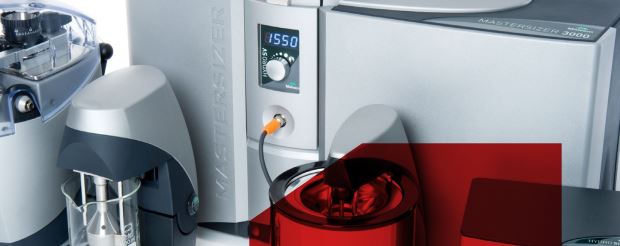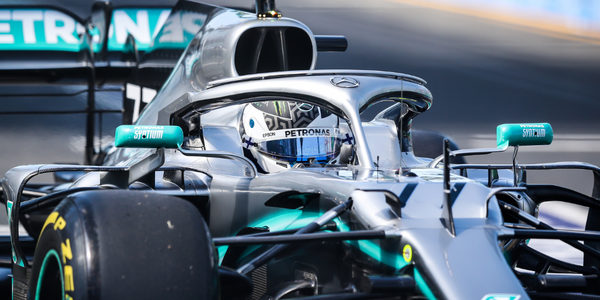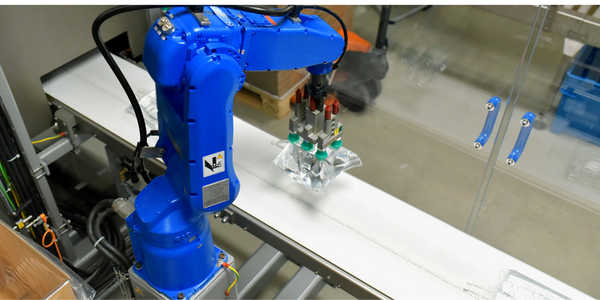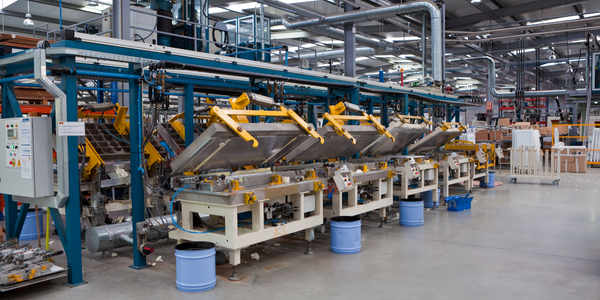Technology Category
- Application Infrastructure & Middleware - Event-Driven Application
Applicable Functions
- Sales & Marketing
Use Cases
- Time Sensitive Networking
About The Customer
The customer in this case study is Purpose Disruptors, an organization that aims to utilize the power of the advertising industry to promote new ways of living in a sustainable future. They initiated the Good Life 2030 project with the goal of changing the public's perception of the year 2030 and promoting a sustainable, connected future. They believe that climate actions can lead to a better quality of life and that the year 2030 should be a time to enjoy more of what people love and less of what they don't. To achieve this, they collaborated with three agencies, including Iris, to create content that would resonate with the public and inspire them to embrace a sustainable future.
The Challenge
The Good Life 2030 project, initiated by Purpose Disruptors, was faced with the challenge of changing the public's perception of the year 2030. The project aimed to leverage the power of the advertising industry to promote sustainable ways of living in the future. However, the year 2030 was perceived negatively, with many people fearing the changes that a sustainable future might bring. The challenge was to create content that would not only change this perception but also highlight the benefits of a sustainable future. The content needed to be based on real citizen visions and had to portray a positive, connected 2030 that people didn't realize they were dreaming of, but had a taste of during the lockdown.
The Solution
To address this challenge, Iris, one of the three agencies chosen for the project, created a short film titled 'The Good Stuff'. The film questioned the public's addiction to 'stuff' and highlighted how advertising has programmed people to consume more. It showed that experiences during the lockdown made people realize that less can actually mean more. The film emphasized the importance of reconnecting with the 'good stuff' such as spending more time with family and friends, connecting with oneself, and nature. The film was launched at the IMAX Cinema in the COP26 Green Zone and was also live-streamed and promoted on social media. This innovative approach used the power of storytelling and visual media to promote a sustainable future and change perceptions about the year 2030.
Operational Impact
Quantitative Benefit

Case Study missing?
Start adding your own!
Register with your work email and create a new case study profile for your business.
Related Case Studies.

Case Study
Centralizing Data for Improved Efficiency: A Case Study on Malvern Panalytical
Malvern Panalytical, a UK-based hi-tech electronics company, was grappling with the challenge of decentralized data storage. The company had a vast amount of unstructured data scattered across various platforms, from hard drives to emails and floppy disks. This made the data searching process extremely cumbersome and inefficient. The company's rapid growth, from 200 to over 1,000 employees in a decade, and expansion across three continents further exacerbated the need for a more structured and centralized data system. As a company involved in electronics manufacturing and software development, it was crucial for Malvern Panalytical to find a platform that could structure all their data, track all modifications of documents in real time, and provide clear visibility of the internal information flow across all its facilities.

Case Study
Managed Hosting Platform
Formula 1® is a sport where every millisecond matters. With changing preferences and the growth of the digital medium, many fans choose to experience the sport through the F1.com website. The website needs to deliver a superior experience to tens of millions of fans across the world consistently. Hence, it is imperative to have a robust platform that can deliver the required performance and scale with growing trac and dynamic fan expectations. Some of the key challenges are: • Every race weekend, Formula1.com attracts up to 7 million fans. Managing this huge surge in website traffic, requires a scalable hosting platform that can simultaneously allow millions of fans to experience the excitement of the sport seamlessly. • Fans across the globe expect an engaging and immersive experience through enriched and enhanced race content across multiple devices. To meet this requirement Formula1.com needs to have a robust platform that is able to deliver real-time updates and information across screens, be it tablets, TVs or smartphones. • A global brand like Formula 1® needs to ensure it delivers a consistent user experience across all platforms across the globe. This consistent delivery of enriched content cannot be compromised through downtime or any other issue at any point. • In an age where threats to global websites are prevalent, Formula 1® needed a platform that was ready to meet any challenge to its website. They needed a solution that delivers consistency, scalability and yet at the same time is continuously monitored, secure and reliable.

Case Study
Flow Robotics: Scaling Up Production and Accelerating Product Development with IoT
Flow Robotics, a Danish manufacturer, developed flowbot™ ONE pipetting robots to alleviate the strain on bioanalysts in life-science laboratories and hospitals across Europe. These robots were designed to automate part of the testing process, speeding up the time it takes to produce results and reducing pressure on staff. However, the company faced challenges in scaling up production and accelerating product development. High workloads and physically challenging conditions have long been an issue for laboratory professionals. Flow Robotics estimates that around half of medical lab technicians carry out the same arm movements for at least a quarter of their working day. The American Society for Clinical Pathology reported that 85% of laboratory professionals feel burnt out; 36% struggle with inadequate staffing; and 32% face a heavy workload and pressure to complete all testing on time.

Case Study
EDF's Transformation: Enhancing Employee Experience through IT Modernization
EDF, a major UK utilities company, was grappling with a highly customized service management system that was largely manual, with limited potential for automation. This made it difficult to predict or prevent system failures and provide a resilient service. The company's IT system for incident handling was purely manual, leaving no room for modernization. EDF wanted to serve its business and residential customers better by improving the response time to rising energy demands. To achieve this, the company needed to provide its employees with the right tools for improved productivity, better collaboration, and an enhanced IT experience at a reduced cost to serve.

Case Study
Mastercard Exceeds CTR Benchmark by 54% with IBM Watson Advertising Accelerator
In the face of global challenges, brands were required to adapt their communication and outreach strategies. Mastercard, a global technology company in the payments industry, was no exception. The company needed to educate consumers about their partnership with ‘Stand Up to Cancer’ and their campaign to donate up to four million dollars to help fund cancer research. The challenge was to effectively reach and engage consumers, and to do so in a way that would resonate with them and encourage them to take action.




